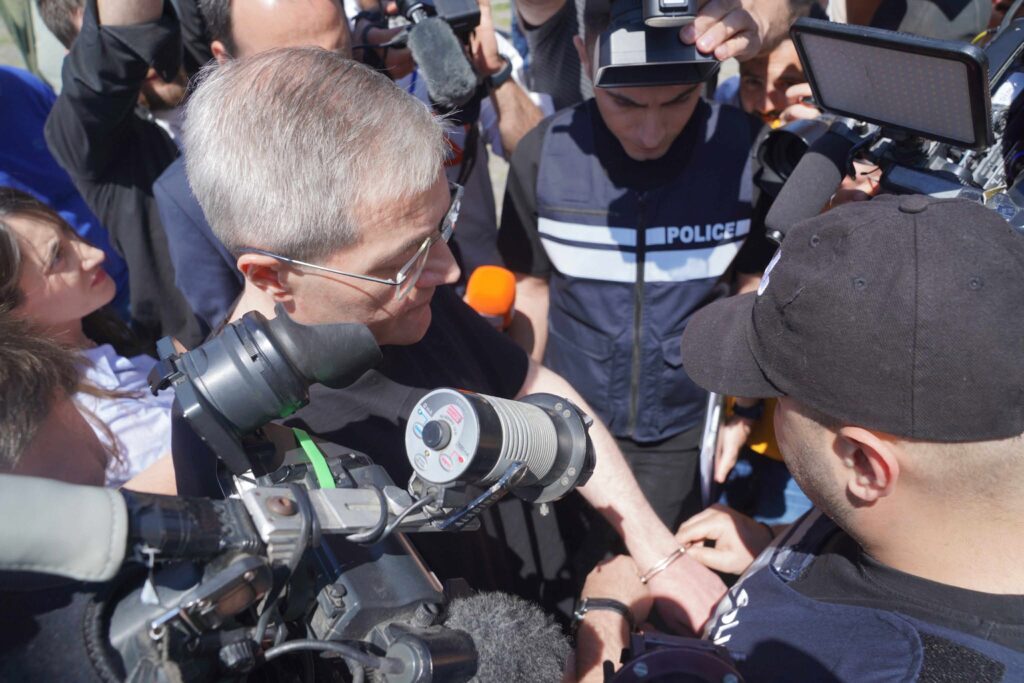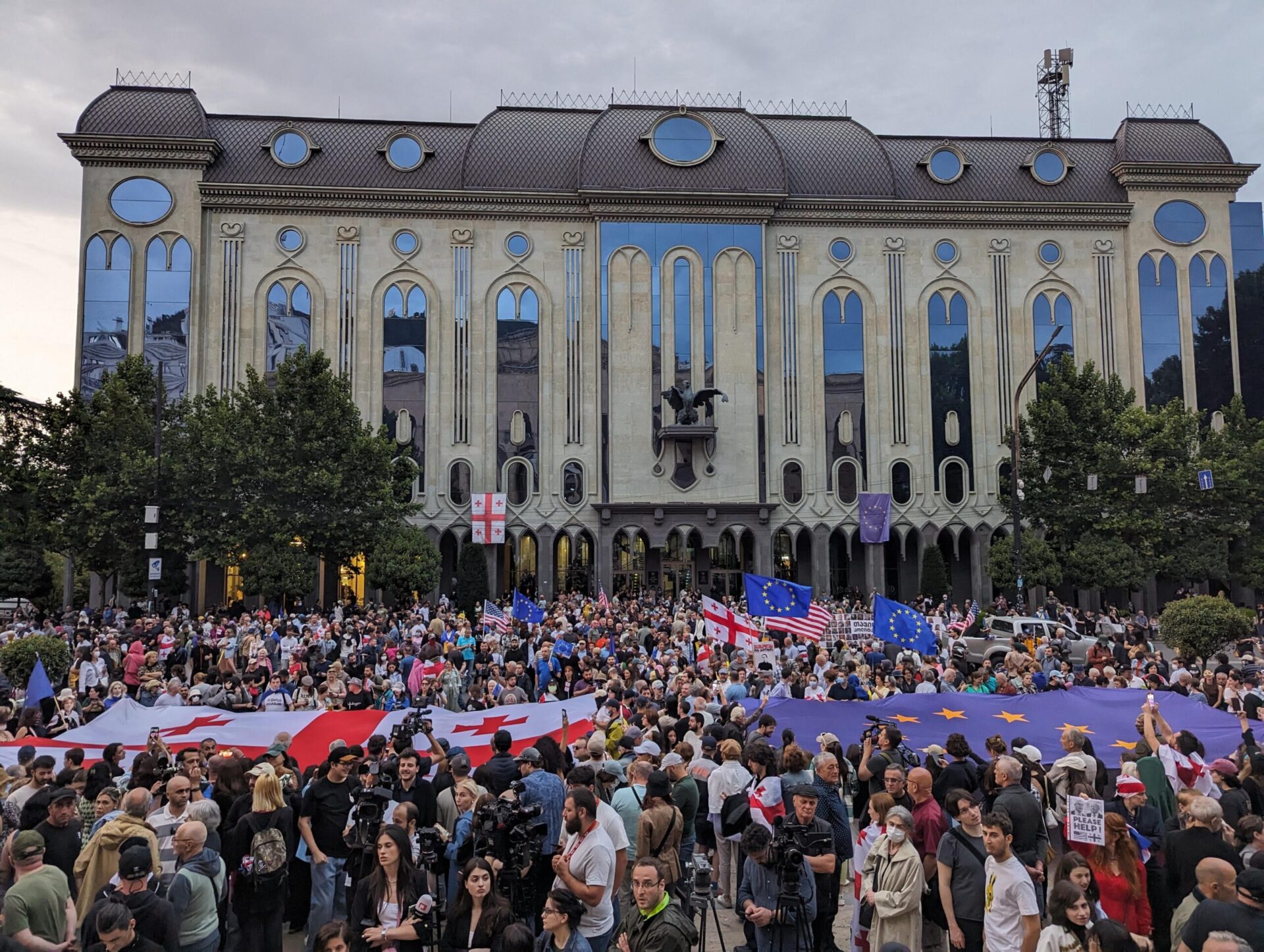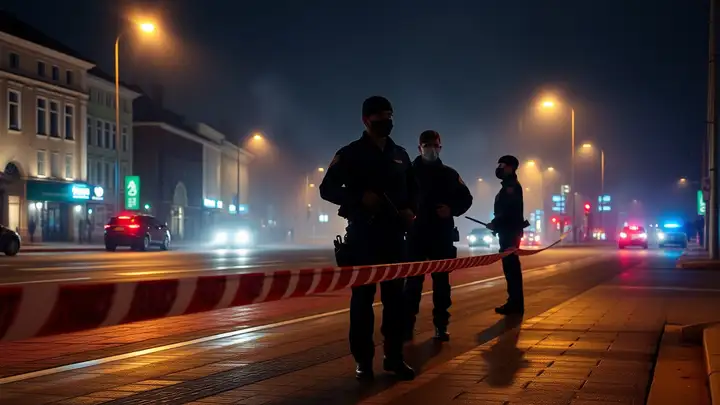
Georgia’s Constitutional Reform Under Threat
Georgia’s Constitutional Reform Under Threat
On June 7, Georgia kicked off a public discussion on the adoption of new constitutional amendments. This reform may prove to be the most important change to the country’s constitution since 1990, when Georgia held its first democratic multi-party elections. The proposed amendments will allow for the implementation of first a predominantly proportional (2020) and then a fully proportional (2024) parliamentary election system. Until now, the national legislature has been elected according to a mixed proportional-majority system: out of 150 members of parliament (MP), 77 are elected by party lists and 73 in majoritarian single-member districts. Opposition leaders believe such an electoral system offers an undue advantage for the ruling Georgian Dream (GD) party and has slowed down the development of Georgian democracy.
The constitutional reform package stems from an important political compromise struck several months earlier thanks to the decisive mediation by United States ambassador to Georgia Kelly C. Degnan. Namely, on March 8, following long discussions and persistent street protests sparked last summer, billionaire Bidzina Ivanishvili’s GD party and the United Opposition bloc signed an agreement, according to which this year’s (October 31) parliamentary elections would see 30 deputies elected from single-member districts and 120 MPs from party lists (Civil.ge, March 8). The second part of the agreement, on the inadmissibility of political interference in the justice system, encouraged the opposition to forcefully demand the immediate release of its three leaders: the founder of the Victorious Georgia (VG) party and former defense minister, Irakli Okruashvili; the former mayor of the Georgian capital of Tbilisi and one of the leaders of the European Georgia (EG) party, Gigi Ugulava; as well as the owner of the pro-opposition television network Main Channel, George Rurua (Civil.ge, May 18)
Ugulava was sentenced to three years and three months in prison for embezzlement of public funds in 2012. Okruashvili was found guilty and sentenced to five years in prison on charges of violence against the police during mass protests on June 20, 2019. And Rurua is accused of illegal possession of weapons; his trial is still underway (Civil.ge, November 11, 2019).
Georgia’s United Opposition considered its leaders to be political prisoners and has demanded the immediate release of all three. They have garnered support from influential Western politicians, including US Senator James Risch (R-Idaho), the chair of the Senate Foreign Relations Committee, and Andrius Kubilius, who heads the European Parliament’s Delegation to the Euronest Parliamentary Assembly (First Channel, May 12; Bm.ge, May 13).
Last month, Georgian President Salome Zurabishvili used her constitutional prerogative and pardoned two of the opposition leaders, Ugulava and Okruashvili. The president explained her decision by the need to de-escalate political tensions in the country. However, Rurua remains in prison because his case is still ongoing. (Agenda.ge, Civil.ge, May 15).
Grigol Vashadze, the chairperson of the United National Movement (UNM) party (the largest member of the United Opposition bloc), told this author in a June 4 interview, that the opposition was unanimous in its view that the authorities should fully comply with the March 8 agreement and release Rurua. If the ruling party and Ivanishvili refuse to fulfill this requirement, the opposition will boycott the parliamentary vote on constitutional amendments. “If Rurua is not released, our party will not take part in the public discussion of the constitutional amendments or in voting to reform the constitution. The authorities are obliged to fully implement the March 8 agreement,” Vashadze emphasized.
UNM’s head additionally expressed confidence that the United Opposition will defeat Georgian Dream even if the constitutional reform fails and the October 31 elections are held according to the old, mixed majority-proportional system. “But we would prefer to participate in the elections according to a system as close as possible to proportional, because it is fairer considering Georgian conditions,” Vashadze said (Author’s interview, June 4).
When asked about what role UNM’s founder, Mikhail Saakashvili, might play in the upcoming Georgian elections, party leader Grigol Vashadze said that the former president of Georgia is barred “by international law” from participating in Georgian politics while he chairs the executive committee of Ukraine’s council for reforms (see EDM, May 13). However, Saakashvili’s “success in promoting Ukrainian reforms will strengthen UNM’s position in Georgia” (Author’s interview, June 4).
Meanwhile, the sticking point for the United Opposition continues to be the ongoing legal case against George Rurua, who remains in jail despite demands from Western partners for his release as well as the risk of his imprisonment disrupting the adoption of constitutional reforms. The situation has been further complicated by US citizen Tamar Toradze’s recent letter to Senator Risch accusing Rurua of allegedly brutally murdering her brothers and parents in Tbilisi, in 1992, during the Georgian civil war (Imedinews, May 14). To this day, no one had been brought to justice for this crime.
One of the founders of European Georgia, David Darchiashvili, told this author that without Rurua’s release, the opposition in parliament will not vote for the constitutional amendments and “the entire ruling party will be held accountable.” According to Darchiashvili, “morality in politics is very important.” As far as Toradze’s charges against Rurua are concerned, more than 28 years have passed since the murder, and if there was evidence against the incarcerated opposition television company owner, “it should have been presented to the public a long time ago.” The EG party leader added, “Presently, Rurua is accused not of murder, but of illegal weapons possession. Rurua himself rejects these allegations. The 1992 case was only remembered when Rurua became politically active and the authorities wanted to jail him” (Author’s interview, June 5).
GD is not worried about opposition threats to boycott the constitutional reform process. George Gachechiladze, the chairperson of the Green Party (GP), which is part of the ruling parliamentary coalition, said that Georgian Dream, along with some other allied MPs, can count on 113 votes in the legislature, thus guaranteeing the passage of the constitutional changes. According to Gachechiladze, the main vote on the constitutional amendments will take place in late June or early July (Author’s interview, June 5).
Not everyone in Georgia is as optimistic as the leader of the Georgian Greens. And if the ruling party does not manage to amass enough votes to alter the constitution, this will undermine the country’s credibility on the international arena. If that comes to pass, the October 31 elections will be held according to the old election law—in the context of an irreconcilable confrontation between the authorities and the opposition.


